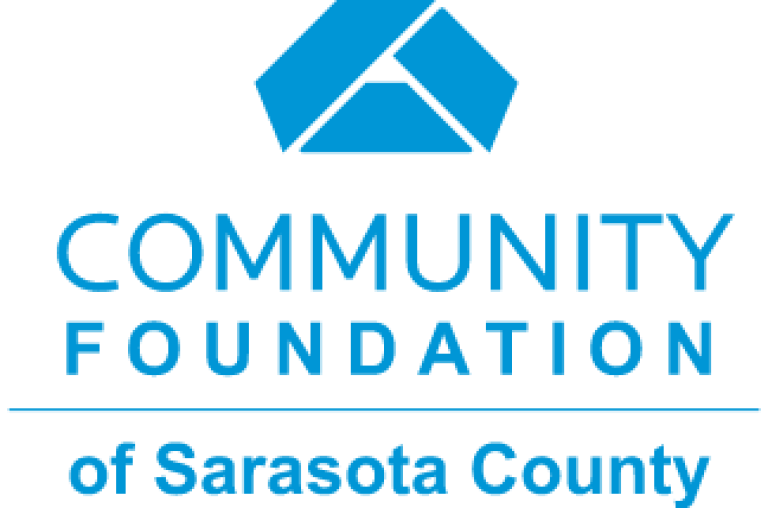April 28, 2023
Discovering Surprises through the Literacy Council of Sarasota
Categories: Nonprofits,
Editor’s note: This blogpost was written as a part of Ringling College of Art and Design’s Storytelling for Community Engagement: Ringling Student Views course, fall semester 2022, led by instructor Sylvia Whitman. Students were paired with nonprofits to learn about their mission and impact, and the post that follows shares the story of The Literacy Council of Sarasota Inc.
The project was completed as part of a collaboration with The Glasser/Schoenbaum Human Services Center. Many thanks to Charlene Altenhain and Sarah Glendening, especially, for their coordination of student writers to nonprofit organizations.
Imagine you can't read. At a restaurant, a server hands you a menu. You can't read it, so you listen and order what the other person is having.
As reported by the National Center for Education, forty-three million Americans are unable to read and write, and two-thirds of them have English as their mother tongue. Everyday tasks are more difficult for these adults, forcing them to depend on their family, partner, or children for assistance. They develop coping mechanisms to compensate and do not feel they have the means or support to change it.
So, then the question arises: How can the surrounding environment help them nonreaders effectively? By getting emotional support and understanding, they can visit groups that will build their confidence, guide, and teach them. According to Susan Bergstrom, program director of the Literacy Council of Sarasota (LCS), “There is no judgment at the Literacy Council of Sarasota. These adult learners are why we exist.”
When hearing about LCF for the first time, we may instantly associate it with TESOL, teaching English as a second language. But it is much more than that. The Literacy Council serves everyone who wants to learn to read, write, do basic math, and more. Through its trained tutors, adults over 16 visiting the center can access help based on their personal needs either in person or online.
To fully understand the phenomenon of illiteracy, we must look at its roots. Functional illiteracy is defined as the lack of reading, writing, and doing basic math above a third-grade level. Half of America’s illiterate adults have a high school diploma, making you think, What has gone wrong with the educational system we are all part of?
Illiteracy is not a disability but can be the result of one. Are schools flexible enough with students who experience processing difficulties like dyslexia? Not every child can adapt and flourish in a predetermined curriculum with a fixed pace of learning. The state and government ought to give students a system that adjusts to their needs, not award them a degree they cannot read.
People often spend many of their years covering up their illiteracy. They feel embarrassed or ashamed to admit and allow others to see that they cannot read or write in their native language. There is no shame in learning English as a second language. It is applauded and admired. But the world reacts differently when an American lacks reading skills. Everyone deserves a second chance that will make them feel better and more confident about themselves.
Established in 1978, the Literacy Council of Sarasota has served over 1,500 adults over the last five years to further their educational goals. It’s here to give that second chance to adults who seek education and self-fulfillment. Reading is a skill most of us take for granted, subconsciously marginalizing those who do not own it. The stigma of lack of education should be removed from our minds and followed by a call to action. This is our call to action, to collectively empower the people around us to complete something that went unfinished, for whatever reason.
Reading skills are required in simple activities ranging from ordering coffee to doing laundry to reading the mail. Illiterate adults often create coping mechanisms which help them navigate their everyday life such as relying on their memory and hearing abilities rather than their sight.
The Literacy Council’s individualized, learner-centered approach to teaching is what makes them effective and unique. LCS wishes to make learning accessible to every adult who will most likely be preoccupied with working and caring for family during the day. Classes take place at times most convenient for the learner, online or in person. One-on-one-volunteer tutors work with adults to identify what is relevant to them, and what style of teaching will suit them, at their own pace. The student’s privacy is always taken into consideration and always respected.
I would like to highlight one special story of a past student, Pat. Pat was born and raised in New York by Italian immigrant parents. In his senior year, he dropped out of high school and eventually joined the United States Air Force. After serving for four years, he entered the New York City Fire Department, where he served the Manhattan community as a firefighter—“the most rewarding job that a man can ever have,” he says. Pat then went on to be a funeral director in Sarasota for 29 years.
A detail many around him had not noticed was that Pat was illiterate. He could not read. He could not write. But he was committed to changing that for himself. The Literacy Council worked with Pat weekly for two years, resulting in him reading and enjoying books for the rest of his life.
It may be the firefighter down the street, the mother at our children's daycare, or the worker in our favorite restaurant who carries a secret. We expect people around us to know how to read and are surprised when proven wrong. Let’s make this surprise motivate us to recognize this epidemic and act against it. There are organizations capable of providing valuable academic and emotional support. The Literacy Council of Sarasota is one of them.
